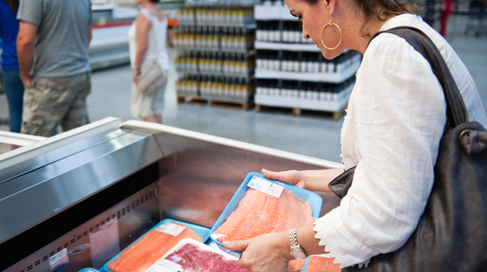Seafood Safety and the Trans-Pacific Partnership (TPP)
December 5th, 2014
Download the Fact Sheet
The Trans-Pacific Partnership (TPP) is a trade deal currently under negotiation among 12 nations—Australia, Brunei Darussalam, Canada,
Chile, Japan, Malaysia, Mexico, New Zealand, Peru, Singapore, United States, and Vietnam. The TPP includes some of the leading fish
and seafood exporting countries in the world—Vietnam, Chile, Japan, and Malaysia are among the top 20 aquaculture centers worldwide.
Already about one in five shrimp, three in five crabs, and three in five catfish consumed by Americans come from TPP countries (2012 data).
In many TPP countries, farm fish are raised with chemicals and antibiotics that are not allowed in the U.S. The TPP aims to reduce or eliminate trade barriers on fish imports, further increase U.S. seafood imports, and put additional pressures on already inadequate federal inspection of seafood imports. Currently, just over 1 percent of imported fish and seafood shipments is inspected or tested. More than half of these are only sight inspected “for obvious defects that would be apparent without laboratory analysis.”
In sum, TPP could negatively impact food safety of U.S. citizens and also contribute to the continuing decline of jobs in the U.S. seafood sector. Additional food safety hazards could reach the U.S. if China is included in the TPP (see Seafood Imports from China).
Share this:
https://centerforfoodsafety.org/files/istock_000013293301small_54526.jpg
Related News




